When injuries that require some first aid occur, there if often a bit of panic, and it is easy to imagine how some of these common misconceptions came about. The truth is, some of these practices are likely to do more harm than good for you, and people make these mistakes every day. Here are five common first aid misconceptions that you should know about.

First Aid – You’re doing it Wrong
by edstorm
Common First Aid misconceptions that can cause people a lot of harm.
What do you do when you get a nose bleed? People’s responses to this common (and sometimes messy) problem are as widespread as misguided cures for hiccups. Some people try and just plug the issue with a ball of tissue paper in the nose, while others suggest pinching the nose and tilt the head back so no blood can run out. The latter suggestion is actually dangerous, especially in the case of heavy bleeding. The correct way to deal with a bleeding nose is to pinch it at the bridge and lean forward. Only if the bleeding continues for 5 minutes should you seek assistance at your nearest ER.
Some people have crazy ideas for treating burns, the weirdest of which must be that applying butter, oil or even mayonnaise to a burn will help to cool and soothe it. This is more likely to suffocate your skin, which is exactly what a burn doesn’t need, and the food products are far from sterile, putting your skin at risk of infection.
Another mistake many people make is to remove clothing from around the burn area as quickly as possible. This should be avoided as pulling the clothing off could damage the skin or pull it off completely. The correct way to deal with a burn is to rinse it gently with cool (but not ice cold) water, and to apply some antibiotic burn ointment. If the burn is serious enough that blisters appear immediately, go to the ER, and don’t pop them!
A fever is a horrible and debilitating affliction, and so it’s no surprise people are willing to try any number of colourful remedies to get rid of the high temperature. A common dangerous mistake is to apply rubbing alcohol onto the skin. The logic behind may be that as it evaporates, it creates a soothingly cool sensation on the skin, but this treats only the symptoms and not the sickness. In reality, the alcohol is more likely to be absorbed by the skin, which can be very dangerous, especially for young children who are especially sensitive to the substance. The best way to deal with a fever is to take ibuprofen, and, if the temperature does not subside after two or three days’ rest, to see your doctor.
If someone is choking on something they’ve eaten, the most common response by those nearby is to attempt to perform the Heimlich maneuver. What many do not realize is that this method of forcing air up through the body to dislodge the blockage will only work if the airway is completely blocked. The Heimlich is more likely to cause trauma and a rush of blood to the head for someone whose throat is only partially blocked. It is important to listen closely to the person choking; if they are coughing or can speak at all, it is only a partial blockage, and coughing should get it out. Do not encourage them to drink water as this would fill up whatever small space is still unblocked in the esophagus. Only if the person is clearly unable to breathe, should you attempt the Heimlich.
A common mistake that poses a great threat is to apply a tourniquet to a bleeding extremity to stop the stem the blood loss. A tourniquet is actually going to do more harm than good, in that by blocking off all blood flow to the area, you could cause the area permanent damage. Tourniquets should only be used as a last resort in case of an animal bite, severe bleeding or a wound that is gaping. Otherwise, the best way to deal with a cut is to pad it with layers of sterilized gauze or cloth, and to apply direct but light pressure until the bleeding ceases.
Useful Links
Wikipedia Page on First Aid
Information on the history and practice of First Aid.
Dealing with Burns
Information about degrees of burns and tips on effectively treating minor surface burns.
IFC & Medical Aid Quotes
A site with useful information on various medical aid providers in South Africa, as well as the service of comparing any two medical aid schemes side by side.
You might also like
How to Lower Cortisol Levels Reduce Stress Hormone and Improve...Cortisol is a steroid hormone regulating metabolism, the immune system and ai...
Walking Your Way to HealthThere is much research that shows that walking is beneficial to body and mind.
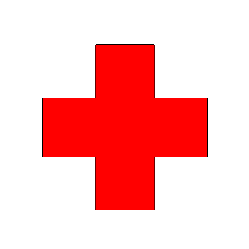

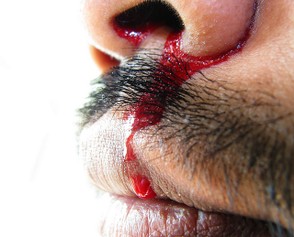
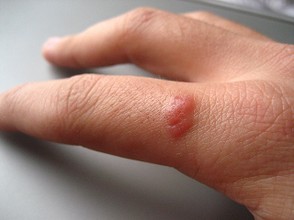
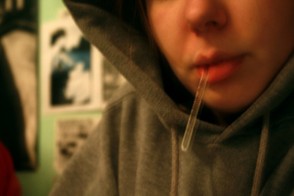
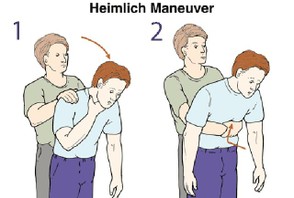
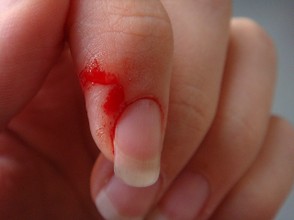

 Herbal Medicine in South Africaon 08/20/2014
Herbal Medicine in South Africaon 08/20/2014
 Citroën, Europe’s First Mass Producer of Carson 07/04/2014
Citroën, Europe’s First Mass Producer of Carson 07/04/2014
 Use Smartphone Technology for Evidence Collectionon 07/03/2014
Use Smartphone Technology for Evidence Collectionon 07/03/2014
 Smart, Sneaky Solutions for Hiding Valuableson 06/13/2014
Smart, Sneaky Solutions for Hiding Valuableson 06/13/2014


Comments
Good advice. I usually let a fever run its course, although I've never had a really high fever. I drink a lot of liquids and put a cool washcloth on my forehead or take a cool shower.
This is all great advice. I didn't know that about fever and ibuprofen! Great tip; thanks.